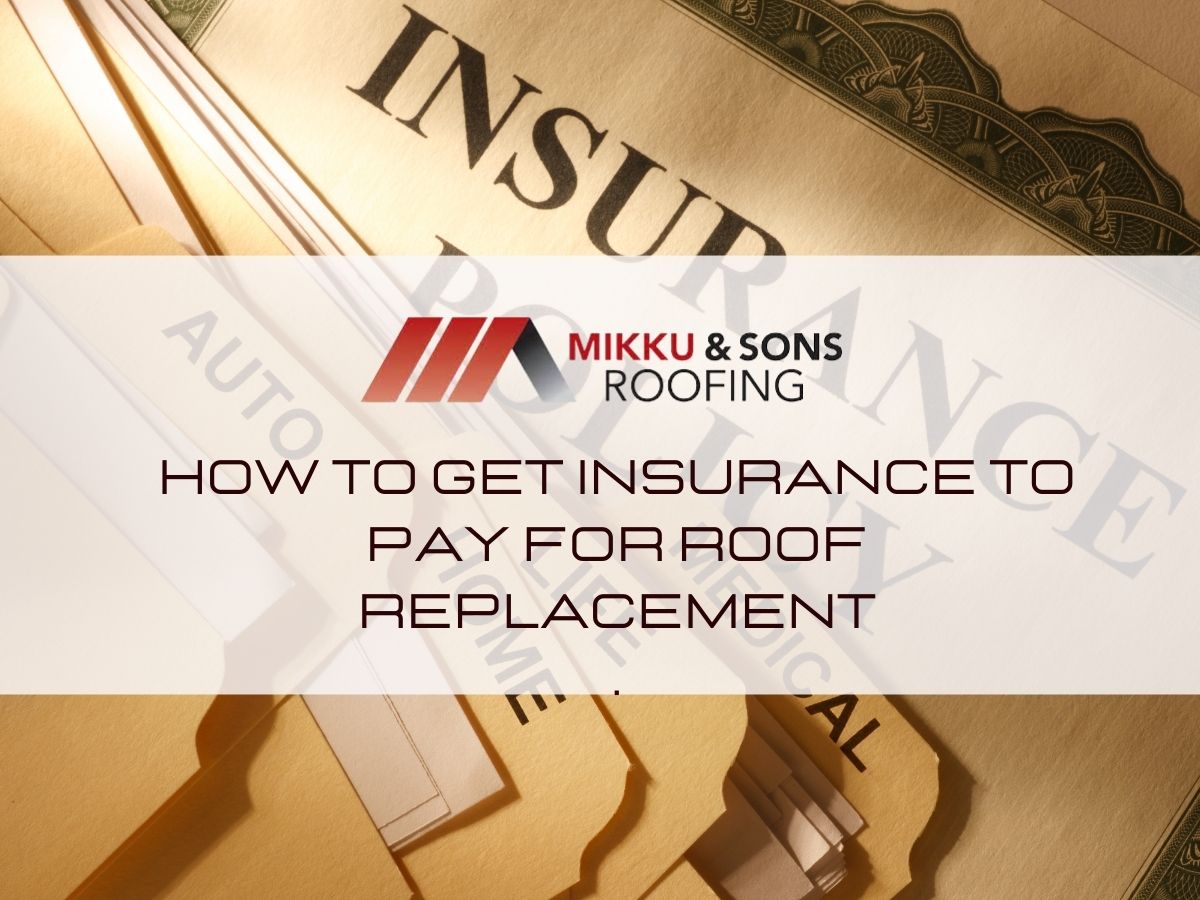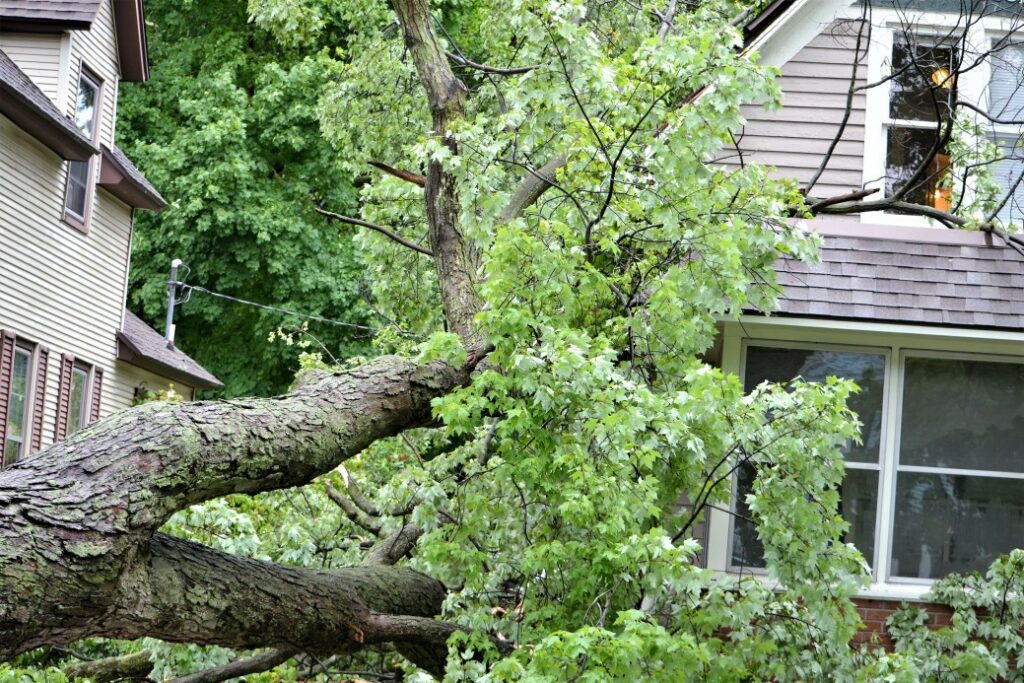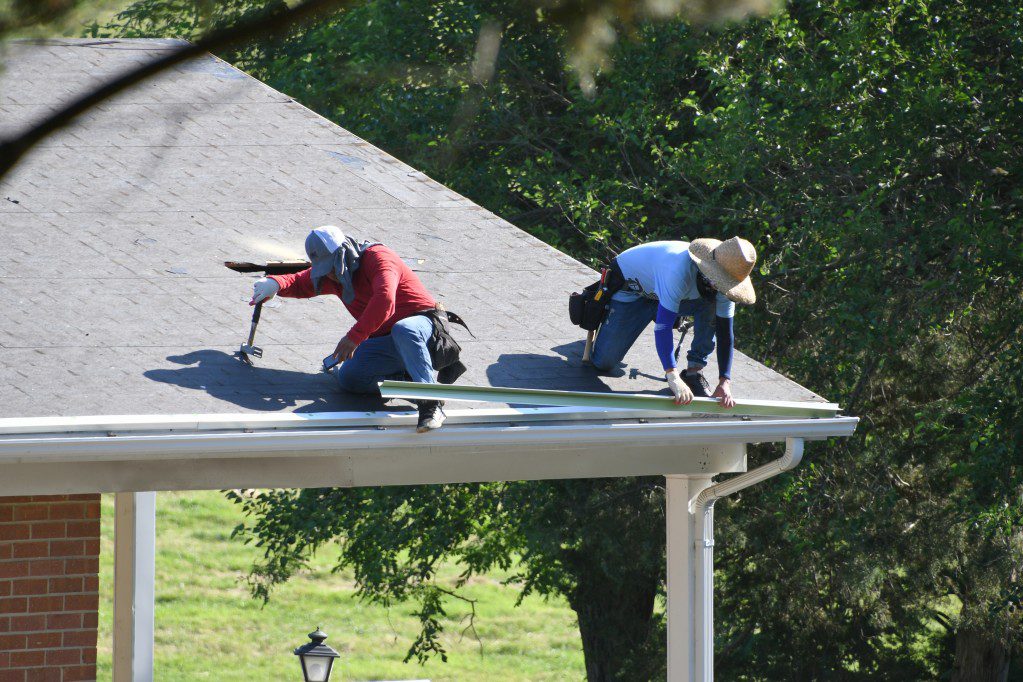

A roof plays a vital role in a house. Any damage or shortcomings should be fixed as soon as possible to avoid any inconveniences and further damage to the home.
However, roofing jobs can be costly, especially when problems crop up from nowhere!
This shouldn’t be the case; you could get your insurance company to pay for roof replacement with the right steps.
Dwelling coverage is a part of the home insurance that covers a home damaged by a hazard. Remember dwelling policy only cover the physical structure of the home.
A home owner’s insurance typically covers the entire home. Dwelling insurance is part of the home owner’s insurance most of the time.
An insurance company typically covers damage from sudden circumstances like weather or fire damage. The overall damage covered depends on the insurance policy and the causes of the damage.

To avoid the ‘administrative errors’ that insurance companies use to get out of covering your damages, it is necessary that you follow the correct steps. The key thing is not to let your provider’s agents boss you around or dismiss your statements.
Before anything, you should get a copy, or if you have one, read through the policy and understand it. This is to give you an understanding of the situation and prevent any situations that may make you miss out on the compensation.
Age
A roof has a lifespan determined by the type of roof cladding and the weather conditions of the place. Other factors such as moss and plant damage also cause deterioration of the roof.
Some insurers offer a 10-year warranty or window for complete coverage beyond which the depreciated value is considered. The company will use the depreciated value of the roof’s cost before the damage occurs.
Types of coverage
Most insurance companies cover roof damage in one of two ways:
| Coverage Type | Definition of Cover |
| Repair Coverage | The repair coverage considers the roof’s depreciated value and the material used. The replacement cost may be low in this case. |
| Replacement Coverage | The insurance company may cover roof damage caused by the factors stated in the agreement. It covers partial and complete roof damage from the events stated in the policy and returns the roof to a brand new condition. |
Having the official documentation when filing for claims is essential. This is also why the causal family pictures on weekends may be more important than you think.
Like all other companies, an insurance company is about business and profit. They will send an agent to access the damage and find reasons why your claim shouldn’t go through.
The agent scrutinizes the roof’s before and after conditions, and presenting the documented damage is proof to get a step ahead.

Find an agent from the roofing company who has expertise in dealing with claims. They should also be reputable to have a good working roof and not let the compensation go to waste.
There may be some parts of the roof that you may not know need replacement. The roof’s framing may have been damaged, like the ridge board and rafters, and the right step should be a total replacement.
The damage report also highlights parts of the roof, which should be stated in the claim to get it fixed. This should be written declaring the cause and extent of damage on the rest of the roof.
Before you file for your insurance claim, you need to prevent your damaged roof from further damage. Doing this comes in handy in the case of storm damage whereby the roof and house are susceptible to more damage from being exposed.
You may be waiting for a claim to go through, and your roof gets damaged. Most insurance companies would not cover double repairs if the owner didn’t take steps to protect it.
Roof repairs may take a while, together with the filing process. The roofing company will cover or drape the roof while waiting to fix it.
A claim is completed when the insurer offers the owner the money to fix the roof. It may be a considerable sum of money, but a huge sum doesn’t mean that you’ll get a quality roof.
Having your roofing agent draft you the cost of fixing the damage will give you an insight into how much you may need from the claim.
Contingency clauses are requirements by either the insurance company or the roofing company for their services. There may be conditions on the contract that work to their advantage, and you need to check to see that they won’t be an inconvenience to you.
By the roofing contractor:
Before going to your insurance company with a quote on how much it will cost to fix the roof, you need to consult with multiple roofing contractors to find the best deal.
The best deal may sound price-based but getting a high-quality finish on your roof is always best.
